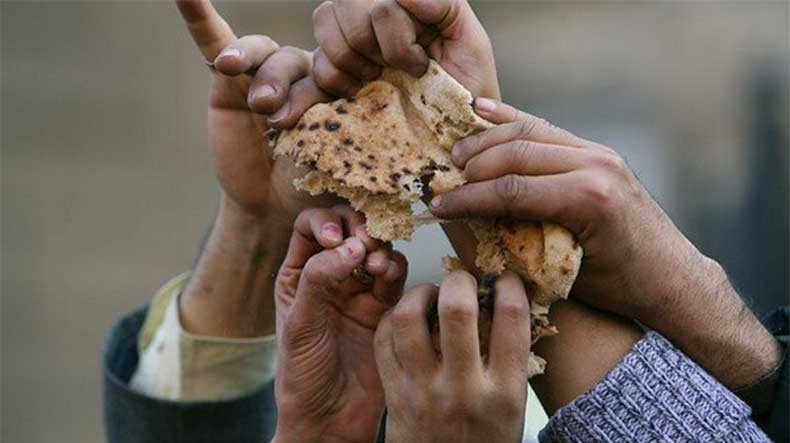
UN report: Pandemic year marked by rise in world hunger
World hunger and malnutrition levels worsened dramatically last year, with most of the increase likely due to the COVID-19 pandemic, according to a multi-agency United Nations (UN) report published on Monday, Al Jazeera reported.
The number of undernourished people rose to about 768 million – equivalent to 10 percent of the world’s population and an increase of about 118 million versus 2019, said the report published by UN agencies, including the Food and Agriculture Organization (FAO), the World Food Programme (WFP) and the World Health Organisation (WHO).
“Unfortunately, the pandemic continues to expose weaknesses in our food systems, which threaten the lives and livelihoods of people around the world. No region of the world has been spared,” the heads of the five UN agencies wrote in this year’s Foreword, warning of a “critical juncture”.
While more than half of all undernourished people (418 million) live in Asia, Africa represented the biggest jump in cases – more than double that of any other region – at 21 percent of the population. More than a third of the continent’s population – 282 million – is estimated to be undernourished, the report said.
Of the victims, children remain the ones who pay the highest price, the report continued, with more than 149 million less than the age of five estimated to be afflicted with stunted growth.
The report, the first comprehensive assessment of food insecurity and nutrition since the pandemic emerged in December 2019, said that hunger was spreading around the world even before the pandemic, with other major causes of food insecurity being conflict, economic recessions, and climate extremes.
The 2021 edition of “The State of Food Security and Nutrition in the World” estimated that on current trends, the UN sustainable development goal of zero hunger by 2030 will be missed by a margin of nearly 660 million people.
That number is 30 million higher than in a scenario where the pandemic had not occurred.
The report recommended policymakers undertake a number of actions to prevent undernourishment, such as incorporating humanitarian, development and peace-building policies in conflict areas; strengthening the resilience of the most vulnerable to economic adversity; and tackling poverty and structural inequalities.
Newsfeed
Videos






























